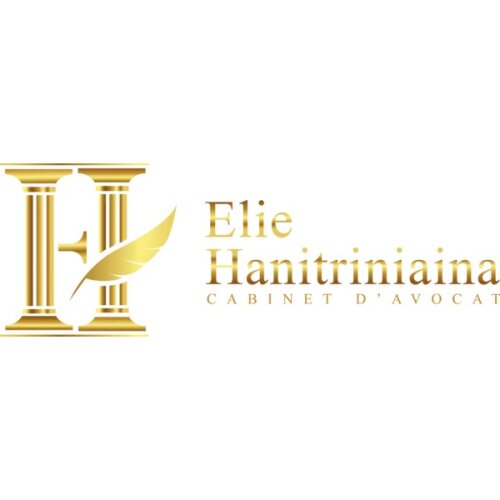Best Public-Private Partnerships (PPP) Lawyers in Antananarivo
Share your needs with us, get contacted by law firms.
Free. Takes 2 min.
List of the best lawyers in Antananarivo, Madagascar
About Public-Private Partnerships (PPP) Law in Antananarivo, Madagascar
Public-Private Partnerships, commonly known as PPPs, are collaborative agreements between government entities and private sector companies to finance, build, operate, or maintain public infrastructure and services. In Antananarivo, Madagascar, PPPs have emerged as a strategic tool for addressing the city's infrastructure challenges while leveraging private investment, expertise, and technology. PPP arrangements are used for various sectors, including transportation, energy, water supply, health, and education.
The legal framework for PPPs in Madagascar is evolving, aiming to foster transparency, efficiency, and equitable risk-sharing between parties. It is crucial for individuals or companies interested in participating in, or affected by, PPP projects in Antananarivo to understand both the opportunities and regulatory requirements.
Why You May Need a Lawyer
Seeking legal advice during any stage of a PPP project in Antananarivo is advised due to the complexity of the laws, contract terms, and business arrangements involved. Here are some situations where legal assistance is especially important:
- Reviewing or drafting a PPP agreement to ensure favorable and fair terms
- Understanding government bidding processes and meeting eligibility requirements
- Navigating regulatory approvals, permits, and compliance obligations
- Handling disputes, breach of contract, delays, or performance-related issues
- Protecting intellectual property or proprietary technology in joint ventures
- Assessing risks and liabilities involved in PPP participation or investments
- Guidance on local content requirements and partnership with Malagasy entities
- Managing land acquisition or environmental impact concerns
- Negotiating financing arrangements with lenders and investment partners
- Ensuring adherence to anti-corruption and transparency standards
A lawyer familiar with PPP law in Madagascar can help safeguard your interests, clarify your rights and responsibilities, and navigate the local legal landscape efficiently.
Local Laws Overview
Public-Private Partnerships in Antananarivo operate under a framework that combines national legislation and regulations tailored to local conditions. The key legal backbone is provided by the Law No 2015-039 on Public-Private Partnerships, along with relevant decrees and ministerial orders. This law sets requirements for project identification, selection, approval, procurement methods, contractual obligations, and dispute resolution.
Some critical aspects of the PPP legal framework in Madagascar include:
- Transparency and Competitiveness: PPP projects must adhere to open, competitive tendering procedures unless specifically exempted.
- Approval and Oversight: All PPP contracts typically require approval from the competent authority, such as the Ministry of Finance and Budget or sector-specific ministries.
- Risk Allocation: Projects must clearly define risk-sharing arrangements between public and private parties, including construction, operational, and financial risks.
- Contract Duration: PPP contracts are usually long-term, often ranging from 5 to 30 years, depending on the nature and scale of the project.
- Performance Standards: Detailed performance and service standards are set forth to monitor project delivery.
- Renegotiation and Termination: Local laws stipulate conditions for contract modification, early termination, and compensation mechanisms.
- Dispute Resolution: Dispute resolution mechanisms may include negotiation, mediation, and arbitration, sometimes under international norms.
- Compliance: Parties must meet requirements around environmental protection, labor, social impact, and anti-corruption measures.
Understanding these aspects is critical for mitigating legal and financial risks in any PPP venture in Antananarivo.
Frequently Asked Questions
What is a Public-Private Partnership (PPP) in Antananarivo?
A PPP in Antananarivo is a formal collaboration between a public authority and a private company to provide public infrastructure or services, often involving shared risks, investment, and long-term contracts.
Who regulates PPP projects in Antananarivo, Madagascar?
The Ministry of Finance and Budget, in coordination with sector-specific ministries and regulatory agencies, oversees PPP projects. They manage approval, compliance, and monitoring.
Which laws govern PPPs in Madagascar?
The principal law is Law No 2015-039 on Public-Private Partnerships, together with relevant decrees, sectoral regulations, and procurement guidelines.
How are PPP opportunities advertised in Antananarivo?
PPP project opportunities are usually published by the relevant ministries, governmental agencies, or through public procurement portals to ensure transparency and competitive bidding.
What are common types of PPP contracts in Madagascar?
Common structures include Build-Operate-Transfer (BOT), Build-Own-Operate (BOO), Design-Build-Finance-Operate (DBFO), long-term service contracts, and joint ventures.
Can foreign companies participate in PPP projects?
Yes, foreign companies can participate, often through consortia or joint ventures with Malagasy partners. They must comply with local laws and may have to fulfill local content or partnership requirements.
How are risks typically allocated in PPP agreements?
Risks are distributed based on which party is best equipped to manage them, covering areas like construction, financing, operations, force majeure, and demand or usage risks.
What happens if there is a dispute in a PPP project?
Disputes are generally resolved through mechanisms outlined in the contract, such as negotiation, mediation, or arbitration. Sometimes international arbitration may be an option for foreign investors.
Are there environmental and social requirements for PPPs?
Yes, all PPPs must comply with national and local laws on environmental protection, social impact assessment, and community engagement, especially for projects affecting large populations or sensitive areas.
Do PPP contracts in Antananarivo require government guarantees?
Some projects may involve guarantees or government support to enhance financial viability, but these are carefully regulated and require high-level approval to avoid undue fiscal risk.
Additional Resources
For further information and support regarding PPP law and opportunities in Antananarivo, Madagascar, the following resources may be useful:
- Ministry of Finance and Budget - PPP Unit
- National Public Procurement Regulatory Authority (Autorité de Régulation des Marchés Publics - ARMP)
- Ministry of Transport, Energy, or sector-specific agencies depending on the project type
- Chamber of Commerce and Industry of Antananarivo
- Madagascar Investment Promotion Agency (EDBM)
- Local and international law firms with expertise in Malagasy business law
- Non-governmental organizations focused on infrastructure, governance, and anti-corruption
Next Steps
If you are considering getting involved in a Public-Private Partnership or need legal advice about an ongoing PPP project in Antananarivo, Madagascar, follow these steps to protect your interests:
- Identify your specific needs and objectives, whether you are investing, contracting, or affected by a PPP project.
- Gather available documentation and background information related to the PPP opportunity or issue.
- Contact a legal professional specializing in PPP law with experience in Antananarivo and Malagasy regulations.
- Consult official resources and regulatory bodies for guidance on compliance, approvals, and government requirements.
- Engage a lawyer early in the process, especially before signing any agreements or entering negotiations.
- Stay informed about recent legal developments or changes in PPP regulations that may affect your project.
With proper legal guidance, you can navigate the complexities of PPP law in Antananarivo, better manage risks, and contribute to successful and sustainable public infrastructure development.
Lawzana helps you find the best lawyers and law firms in Antananarivo through a curated and pre-screened list of qualified legal professionals. Our platform offers rankings and detailed profiles of attorneys and law firms, allowing you to compare based on practice areas, including Public-Private Partnerships (PPP), experience, and client feedback.
Each profile includes a description of the firm's areas of practice, client reviews, team members and partners, year of establishment, spoken languages, office locations, contact information, social media presence, and any published articles or resources. Most firms on our platform speak English and are experienced in both local and international legal matters.
Get a quote from top-rated law firms in Antananarivo, Madagascar — quickly, securely, and without unnecessary hassle.
Disclaimer:
The information provided on this page is for general informational purposes only and does not constitute legal advice. While we strive to ensure the accuracy and relevance of the content, legal information may change over time, and interpretations of the law can vary. You should always consult with a qualified legal professional for advice specific to your situation.
We disclaim all liability for actions taken or not taken based on the content of this page. If you believe any information is incorrect or outdated, please contact us, and we will review and update it where appropriate.














